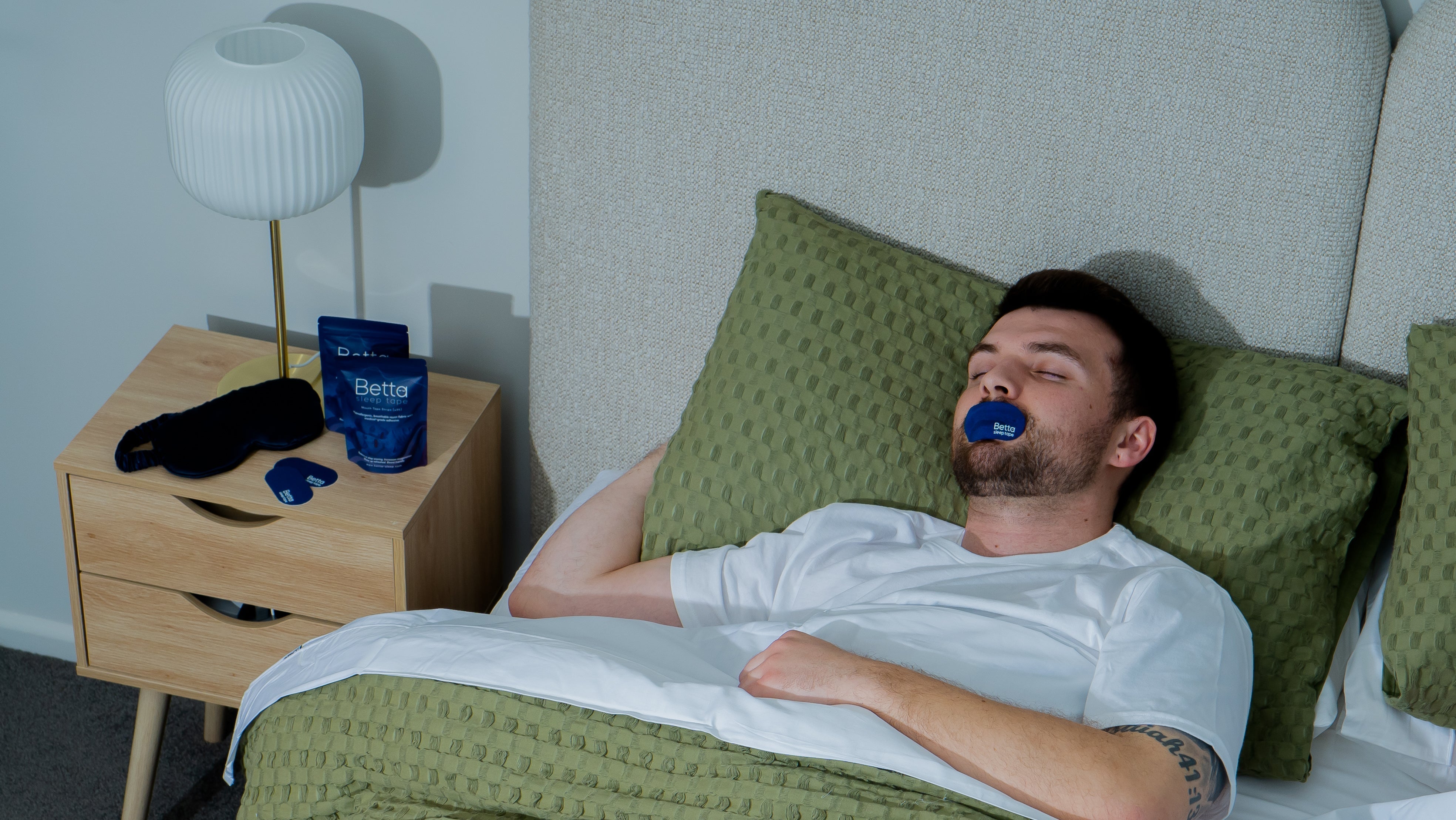
The Science Behind Mouth Taping: An Overview
We optimise our health with supplements and our body with physical activity, but we often neglect a process that occupies a third or more of our lives — sleeping.
The Dangers of Mouth Breathing
Mouth breathing might seem harmless, but it can have significant consequences for your health. When you breathe through your mouth, your respiratory airways narrow, limiting both your minute ventilation and tidal volume. This often leads to hyperventilation, excessive CO₂ loss, and reduced oxygenation — all of which take a toll on cardiovascular and cognitive health.
Mouth breathing is also a leading cause of snoring. James Nestor, author of Breath: The New Science of a Lost Art, ran an experiment by blocking his nose for ten days. His snoring increased by 4,500%. Snoring not only disrupts your own sleep — and your partner’s — but also contributes to CPAP failure and non-adherence, especially for those with sleep apnea.
The Benefits of Mouth Taping
Nasal breathing is the antidote to the issues caused by mouth breathing. Inside your nose, mucus and cilia act as natural defenses, filtering out bacteria and pathogens before they enter your airways.
Boosting nasal airflow supports better oxygen–CO₂ balance, helping to lower blood pressure and promote a calm, steady breathing rhythm. You’ll feel more energised, focused, and healthier overall.
Mental Health and Relationship Gains
Stopping snoring through mouth taping and nasal breathing doesn’t just improve physical health — it can strengthen relationships by eliminating sleep disturbances. Better sleep reduces tension and increases emotional resilience, creating more harmony at home.
It also enhances CPAP effectiveness by promoting a sealed, consistent airway — essential for anyone using respiratory devices during sleep. Prioritising nasal breathing is a powerful step toward better nights and better days.

